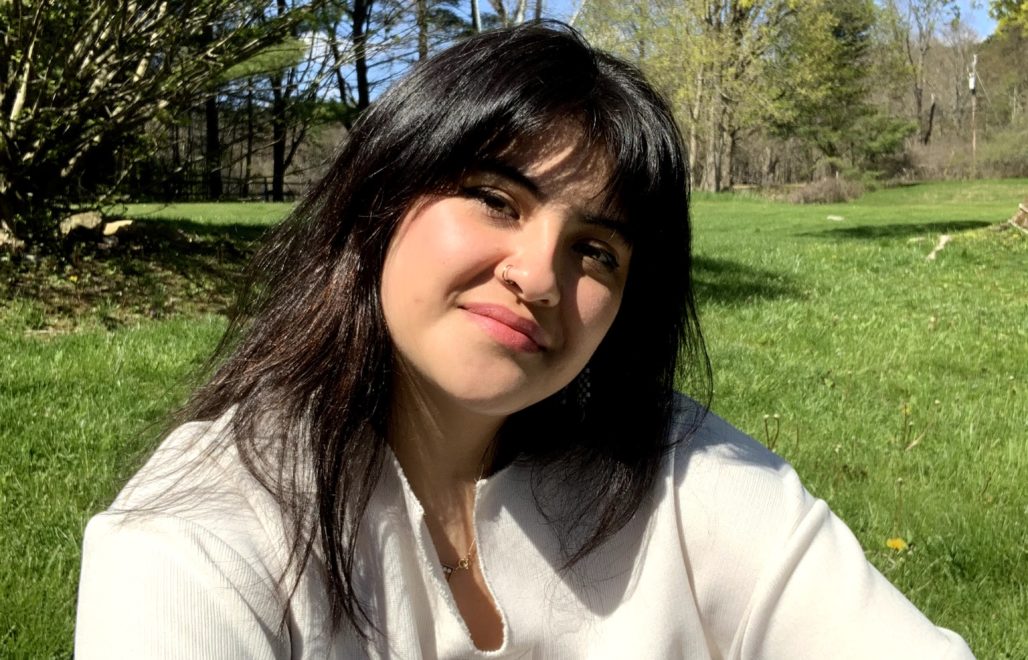Checking In With Our College-Aged Alums: Cecilia Emy ’16

Every year we check in with our alums who are either in college or have just graduated. With the pandemic, the economic downturn, and the national demand for social justice, this is a crucial year to find out how our alums are coping.
Cecilia Emy, A Rhode Island School of Design Graduate (’20), BFS ’16)
Tell me about your work at college.
At RISD, I studied Furniture Design, where students explore product design and sculpture through an abundance of materials, with a focus on wood and metal. I found that I enjoyed working in wood the best. My work is accentuated by an attention to color and shape, often looking eclectic and bright. I find myself rejecting the formal language of traditional furniture and embracing the colors and shapes of public furniture, like bike racks and subway interiors.
What has this year looked like for you, before and during the pandemic?
This year was challenging — the spring of senior year is when students work on their thesis — or as we call it, Senior Degree Project. We are required to make at least three fully-realized pieces, but before we could complete one, we were forced to pack up and leave, due to COVID-19. My peers and I had to sacrifice the projects we wanted to do, either starting a new project that was feasible to complete from home, or realizing our projects as drawings on paper, and creating a report that was more research heavy, which is what I chose to do. It was incredibly hard to abandon my studio practice, but I feel that the report I completed still represents the incredible effort I put into all my work.
What’s the plan for the summer and fall?
I was recently hired as a fabricator at a sculpture and furniture studio in Brownsville. Other than working, I have no particular plans.
What age did you enter BFS?
I entered BFS in 9th grade, at the age of 14.
What was your transition to BFS like?
If I’m honest, my transition to BFS was complicated. The students were incredibly welcoming and eager to make friends, but I was dealing with recently-diagnosed mental health issues. I had to learn how to balance a healthy social life and my classes, which were challenging, and, in hindsight, I probably took a little too seriously. I was lucky, however, to meet teachers and friends that genuinely cared about me and understood the difficulty of balancing all these things for the first time.
What teachers had a profound effect on your experience at BFS?
There are three teachers that I think of when I think BFS — Zenzile Keith, Gorka Hernandez Ortiz, and Mark Buenzle — each had a huge effect on my experience. Not only were they great teachers and kind people, but all three supported me in my academic work, personal self-discovery, and in my college application process. Their lessons have stayed with me the years after high school.
What advice would you give current students at BFS?
I would specifically give advice to students dealing with the college admissions process, which is an incredibly difficult time even without the added stress of COVID-19 and quarantine. Not only would I remind these students that visiting a school in person is not the only way to get to know a campus and its students, I would also say to remember that there is no one school for you. I wish I could have told myself that and relieve the stress of the process a little bit. There are thousands of schools across the country, and any number of them could be the place for you. And for every high school student: remember to go easy on yourself this coming school year! Giving 150% of yourself is not sustainable. Take a break, watch a movie, spend time with friends, have fun. Your teen years should not be remembered for the stress.
How did the Quaker education you received at BFS prepare and guide you for your studies at college, on a micro and macro level? (For example, daily life and challenges, as well as the larger issues of growing up, being away from home, and navigating the world of the university for the first time).
Due to the guidance of my peers and teachers, I learned how best to care for my community, stand up for others, and stand up for myself. During my time at Brooklyn Friends, the Black Lives Matter movement was becoming more publicly visible, and I was lucky to be around people that taught me how to be a good ally. I am also incredibly lucky that I learned how to make room for myself, at school and anywhere else I might find myself, as a mixed Asian woman.
What’s a lesson you’re taking from these last several months that you feel will impact your growth or has made you more resilient?
The last few months have taught me about the fragility of the norm, but how this fragility can be a cause for growth and change — personally, interpersonally, politically, socially. While I’ve never had a plan for my life that I hoped to follow, the pandemic has forced me to rearrange my life and my priorities, reminding myself of what’s most important to me. I’ve learned to become more flexible and am reminded every day that I cannot take for granted the things I have been given — an education, degree, a job, healthy family and friends — and what I can give to those who are not as fortunate as myself. I count myself as incredibly lucky. I don’t plan on forgetting that anytime soon.
